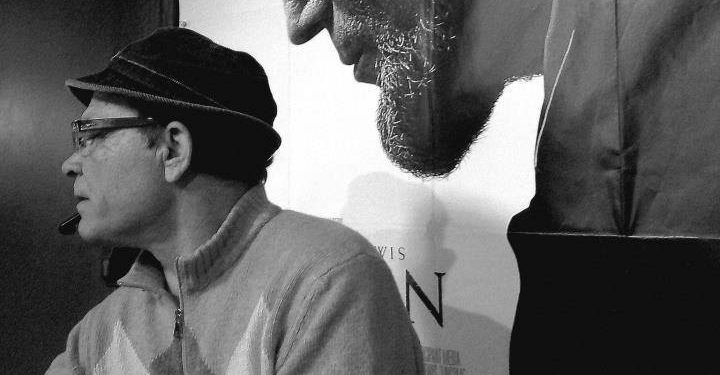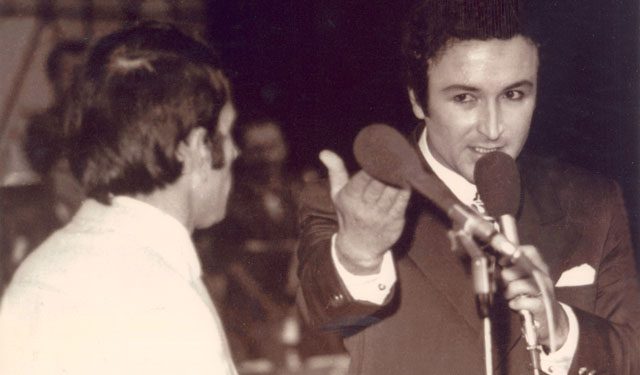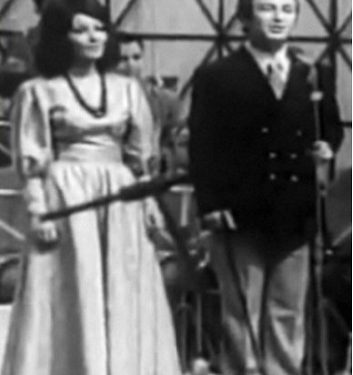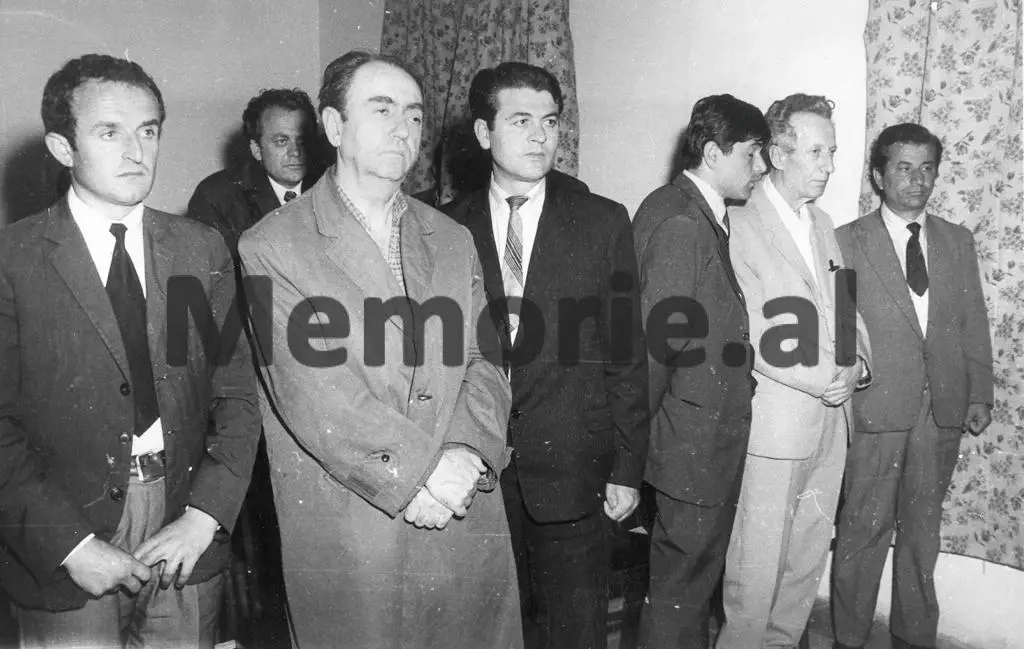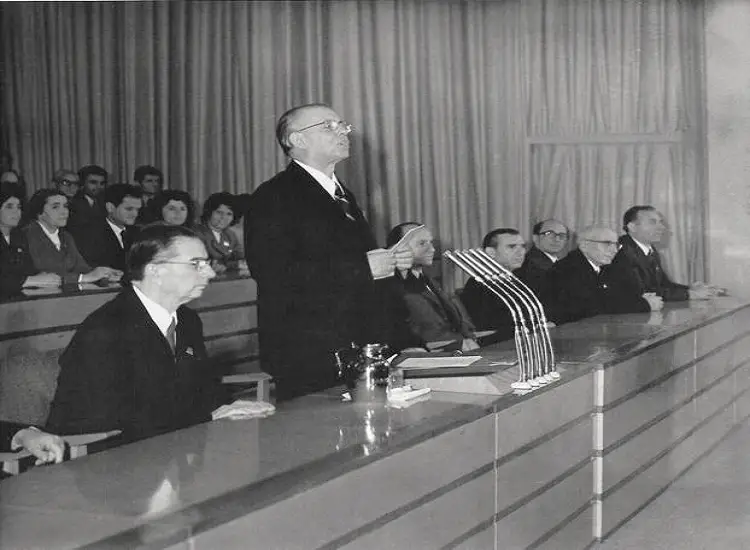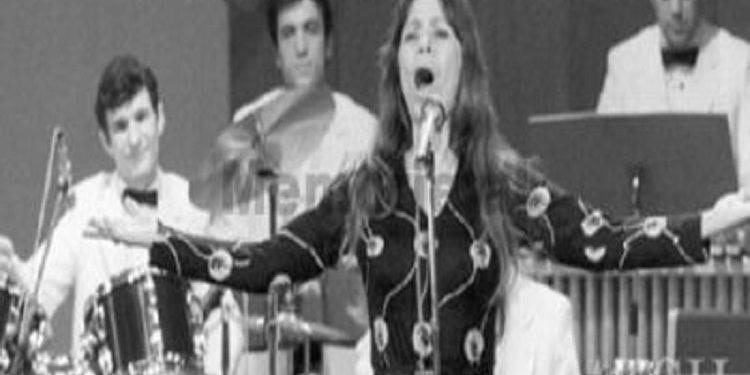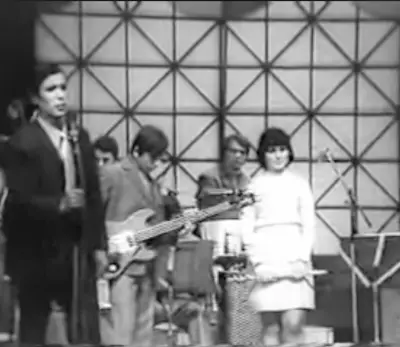By Vasil Qesari
The tenth part
Memorie.al/ The overthrow of the great totalitarian edifice in Albania would leave behind, not only the change of the system, accompanied by lots of hopes, mirages and cries of happiness but, unfortunately, also many wounds, dramas, victims, dust, milk and whatnot lies of all kinds. Ten years and more after that event, which deeply shook society, completely overturning many previous codes, rules and concepts, people still continue to ask themselves such questions as: What really happened in society Albanian, during the last 50 years of the dictatorship? How was it possible that the system managed to warp everything? Why did people accept it? What was the totalitarian logic of the transformation of society and the individual? How were the structures of totalitarian mechanisms conceived and functioning: propaganda, secret police and the exercise of the ideology of terror? How did it happen that among all the communist countries of Eastern Europe, Albania was considered an exception or a special case? Why did Enver Hoxha remain blindly, fanatically loyal to Stalin until the end, turning the country into a prison where violence, fear and purges continued until the end of the 80s? Why was the country so insanely isolated, locking people up between bunkers and barbed wire? Why, then, did all the above phenomena happen…?! The book “Post-scriptum for Dictatorship” does not claim to provide definitive answers to the above questions, or the complexity of the reasons that brought and maintained the totalitarian power in Albania. Nor is it a complete, deep and comprehensive fresco of the life and suffering that people experienced during that system. Its author, perhaps, has the merit that together with the retrospective view of the totalitarian period as well as the zeal of a passionate analyst, he has tried to turn his head back once again, to give not only his personal memories and opinions, but also to return once again to the vision of that era with the simple philosophy of preserving the Memory and supporting the Appeal to never forget the well-known maxim, that…the corpse’s nails and hair continue to grow even after death! Ten years or more after the great revolution, the book in question has current value and we hope it will be appreciated by the reader because, as an Albanian researcher also says… the greatest evil that can happen to a people comes when he fails to analyze his own past. An amnesic people are forced to be constantly neuropathic and repeat their painful experiences…!
Continues from last issue
Spring comes, but I didn’t believe it…!
It was the end of December 1972.
I arrived in Çorovoda after eight hours of walking through forests, gorges and streams. From the deep mountain village of Backa, where I worked as a teacher, I had described Potomi, Kafa, Zogas in the snow and, around seven o’clock in the evening, I had arrived in the city. After recovering a bit by returning a double cognac at “Kafe Skrapari”, I hurried to the only hotel in town.
– There are no seats! – The hotelier, a retired soldier, told me bluntly. I went outside and sat on the porch for a few moments. The night was heavy and dirty black. The small and silent town was submerged in a dense and icy frost, which came down from the snow-covered mountains of Tomorrica, together with the rushing waters of Osum. Now, how should I do it? Where should I go in the midst of that frost…!?
Fortunately, my mind went to a teacher friend from Vlora, who worked as a caretaker in the dormitory of the only secondary school in the city. I decided to go meet him! She could help me. It was enough to put my head somewhere, I didn’t pretend more. And so I did. I went to the dormitory and, after we greeted each other in a friendly way, I cried.
“No problem! – Reassured me – Work that is fixed! Luckily, tonight, a student from Djerba has gone home and his bed is empty. And besides, you know you’re also lucky? You have to attend the last night of the festival. Not a few days ago, with the intervention of the first secretary, the education section bought us a television, which we installed in the canteen of the dormitory…”!
I was really lucky, I said to myself. I felt relieved and happy. I had solved the problem of sleeping, and now I had the privilege of watching the 11th Song Festival on Radio-Television. And since, without…?! Through the TV screen…! Meanwhile, everyone else followed him, only through the radio. Because, like everywhere, and in Čorovoda, there were no more than three or four families that had televisions.
I went downstairs to the canteen and, as soon as I entered, I felt the pungent smell of fermented bread mixed with the warm smell of about two hundred boys and girls who had taken their seats on the benches. The hall was full and full. The television was installed in a corner of the canteen, inside a type of cabinet with a key, the doors of which were completely open. I took a seat, one of the last rows, and lit a cigarette. The broadcast of the festival from the hall of the Opera Theater in Tirana had just started. The announcer was introducing the performer’s orchestra, who were generally quite well-known names.
The songs began to follow each other. Next to me, two girls moved their hips to their own rhythm. Very soon I too was overcome with emotions. What a beautiful festival! What a scene! I couldn’t believe that it was taking place in Tirana, but somewhere else. Far away, in an unspecified place. Somewhere, where there was no Albanian censorship, cliché, gloom, timidity and fear. I felt excitement but, at the same time, surprise. The festival was different, like night and day, compared to those of previous years.
For a moment, I broke away from the screen and asked myself: Wonder?! How was it possible for the authorities to allow such a modern festival? But the melodies did not let me reflect. I sank back into my pleasure. For the first time I was listening to adult songs. Singers who did not sit, as usual, frozen and motionless in front of the microphone. All original orchestrations. Moreover, most of the texts (and this, for the first time in the history of festivals up to that time), talked about love, dreams, hopes, the sea, spring. For the Party of the construction of socialism, there were four or five songs.
And the singers…? They were dressed beautifully and tastefully. With fashionably combed hair. Bejeweled and heavily made up. In the lights of the projectors and the special effects of the TV director, they looked magical. Meanwhile, through the screen, I noticed another element which seemed very original to me. In the main districts of the country, special juries were established, which, through direct connections with the director in Tirana, (as in the Italian festival of Sanremo), gave evaluations for the compositions and interpretations of the singers.
O God?! That festival was a real miracle!
… Taking advantage of the school holidays in January, after spending the New Year’s holiday with my family, I went to Tirana. It had been more than a year since I graduated and I was working as a teacher in a lost Skrapar hole. I miss my friends, the faculty, the streets and the chaos of the capital. That period of separation from student life, (plus, the sadness and exhaustion, there behind the sun, where I had been beaten), seemed to me like a whole life spent in prison. I had the bitter impression that, during that time, I had lost not only many expensive things, but also everything dear and beautiful, which was worth living for. In the depths of my being, I felt that I had been deliberately thrown away, just like a rag.
Exactly, to crush me to death. To be forgotten. To get lost once and for all, far away, among the mountains. Thus, in complete contrast to those visions, thoughts and spiritual pain, Tirana appeared to me even more beautiful, more alive and more civilized than ever before…! Those days that I spent there, wherever I went, in the families of my relatives, in the company of friends and acquaintances, I heard talk and discussion only about the XIth Festival. Many appreciated it and called it wonderful. But there were those who said that he was just a banal imitation of Sanremo. That the television was not on the tracks and that, with the clothes presented by the singers, you had advertised foreign fashion, etc. Even in one family I heard that Comrade Enver himself did not like the festival and that the Party would soon take measures against its organizers.
In the rounds I made on the street around the Palace of Culture, which the students in their slang called Broadway, I noticed that the modernization of life in the capital had moved forward. In a brewery, opposite the Tymi restaurant, (where during our student years, we often went to get meatballs and pilaf with beans), two guys with electric guitars were singing Let it be by the Beatles. Next, on the sidewalks full of people, young men with long hair, narrow jackets at the waist and tektuks and blue jeans passed by. Girls, especially high school students, have become more elegant. They had their hair cut alla – Caterina Caselli, their eyes heavily painted with eye shadow and, their dresses and short skirts, above their knees.
On the mountain of Dajti, an amplifier of Italian television was installed, and many acquaintances told me that they often gathered in the evenings at friends or neighbors who had televisions, to watch the shows with the well-known presenter Mike Bongiorno, Rischia tutto, Lascio o radoppio, or musical varieties of Saturday evenings Canzonissima e Senza rete. The installation of the Italian television amplifier and the free viewing of its broadcasts, that tolerant and warm atmosphere seemed to have brought a new breeze into people’s lives. A pleasant smell, the scent of which, even though it was still January and the flowers were missing, you could feel it everywhere.
That breeze, and because I was far away from the life of the capital, I had also felt it in the distance, there in the mountain village of Backa. There, among the days of sadness, loneliness and extreme poverty of my little students. That year, Radio-Tirana was the only entertainment for us. After broadcasting the Eurovision song festival for the first time, it continued with another new show, where foreign music and songs were broadcast every day. Their texts, even, were first translated by the speaker into Albanian, and then given in their original language.
The unthinkable was happening…!
Radio-Tirana broadcasted foreign songs that were banned until then. Songs, the listening of which, a short time ago, was full of dangers and consequences. Italian and English variety, light music and pop, beat and rock. Most of them were taken from the repertoire of the last Italian festival of Sanremo. The others were popular songs by Mina, Celentano, Reitano, Solo, Morandi, Cinquetti. Yes, even of world-famous bands, such as the Beatles, Rolling Stones, Bee Gis, Abba, Aferdite Childs, etc.,…
What was happening in Tirana and the whole country…?!
Not only the common people, but also many cadres and militants of the Party, felt confused and did not know how to give explanations. People asked with suspicion: Was it true that those concessions were made with guidance from above and with the knowledge of the Leadership? Were they not the first signs of a more tolerant course, which could happily bring about a gradual rapprochement with the West? Or, perhaps, a careful attempt to break out of isolation, giving signals that let it be understood that we too were part of Europe?
Or, should it be something, completely different..?
Just a pulse tax. A crazy attempt by a part of the intelligentsia and the moderate youth of the Art and Culture sectors? Or, the result of the pressure of anti-conformism, which had begun to appear in a certain layer of society, which could not accept the totalitarian rule to live without any individuality? (Striped of any kind of intimate feeling. From the personal self. Contrary to the orientations of the Party’s intense propaganda, which spoke incessantly of the triumph of the collective spirit, against micro-bourgeois individualism and everything to do with the free spiritual world of man?!)
But who, specifically, were those intellectuals who would want to get out of the yoke by risking so much? Who were those who, with courage, had chosen the path of anti-conformism?
First, (in my opinion), they were a limited number of people who also had special characteristics. Most of them were people from the fields of art and culture who, according to the opportunities that arose, tried to avoid the rigid norms in accordance with the prevailing morality. They, although they did not show it openly, were convinced that the Albanian society, which lived not only geographically in Europe, (regardless of its ideological orientation), could not remain indifferent to civilization, traditions, culture and the Western way of life .
Secondly, in the ranks of the anti-conformists, there were, of course, many young men and women (especially among the students) who aspired and dreamed of a completely different way of life. Freer and less politicized. Outside of slogans and dogmas. Beyond ideological taboos and absurd and not at all convincing propaganda. (That part of the youth, which was mainly influenced by foreign televisions and radios, tried to learn and imitate the Western culture and way of life. That kept and dressed according to fashion. That learned foreign languages, kept correspondence abroad or listened modern music…)!
Thirdly, in the category of anti-conformists, (although this may seem quite absurd), the children of the high nomenclature themselves also belonged. Those who had the opportunity to go out or whose parents were members of the Central Committee, ministers, directors, ambassadors or diplomats, easily provided records, tape recorders, cassettes with modern music, illustrated books and magazines, fashionable clothes, etc. . Thus, intentionally or unintentionally, directly or indirectly, they also became a contingent of anti-conformists. Because, with their way of life, their tastes and their external appearance, they influenced others, thus becoming a source of imitation and a conduit for foreign influences…!
Witch hunt…!
A miracle happened, which I could not even imagine!
After three years of exhausting work as a teacher among the mountains in the depths of Skrapar, I was transferred and appointed telechronist, in my hometown. From now on, with camera and pencil in hand, I would work as a correspondent for Albanian Television. This was a new job that encouraged me full of dreams and fantasy. I envisioned my future films with colors and poetic inspirations. They would be the landscapes of Jonufra, the blue sea, the sunsets, the nights with fishermen, the citrus gardens and the lovely coastal villages…!
But, very soon, I would become aware that the purpose of the work entrusted to me was not at all poetry, nor my dreams, nor the role of an artistic reporter. I would just be a propagandist of the Party’s policy. To add to my frustration, I had started work in one of the tensest political situations the country had ever known. Just in time for the witch hunt. After a very short period of liberalism, in 1972, an unprecedented wave of terror swept across the country, which lasted for three years and destroyed tens of thousands of people’s lives.
The campaign was launched after the 11th Radio-Television Song Festival. The party, you had called it, “conspiracy and attempt for counter-revolution”. In all the newspapers, special columns were opened, where individuals and different groups wrote and expressed their opinions about it and about foreign shows in general. The orientations coming from above encouraged that everyone should condemn them without fear and with revolutionary courage, seeing at the same time themselves as in a mirror. This was the reason why the letters and writings coming from below, extremely threatening and wild, insisted that the Party take measures. That the organizers of the XI Festival, and not only them, were severely punished…!
In a speech held at the Presidium of the People’s Assembly, Enver Hoxha, had spoken mercilessly against the Director of RTSH, Todi Lubonja, as well as the propaganda secretary of the Tirana Party Committee, Fadil Paçrami. It seemed that the anger of ‘Zeus’ and his fury had started: exactly because of a concert or more precisely because of a long dress of a presenter. A letter sent somewhere from a distant village caused the Albanian dictator to be protected from this great threat that endangered the State. The author of the letter had discovered the Evil, precisely in the extravagant length of the dress…!
After that, with unprecedented fury, a fierce frontal war against foreign shows began throughout the country. The conclusions of the proceedings of the 4th plenum, which was held from June 26-28, 1973, and in particular the report of Enver Hoxha: “To deepen the ideological fight against foreign manifestations and liberal attitudes towards them”, began to be worked on in every work center, in faculties, schools, mines, military units, villages, neighborhoods. Memorie.al
The next issue follows




